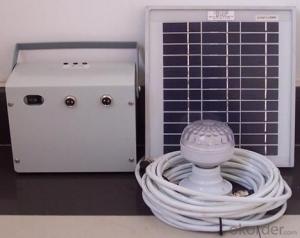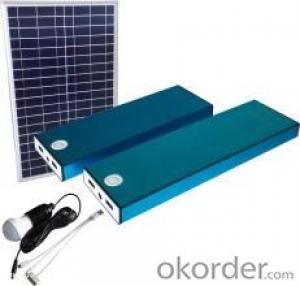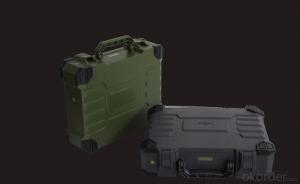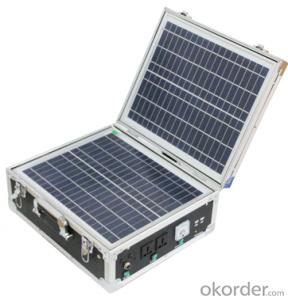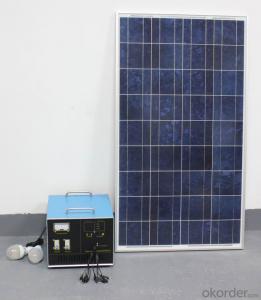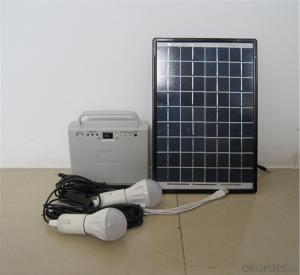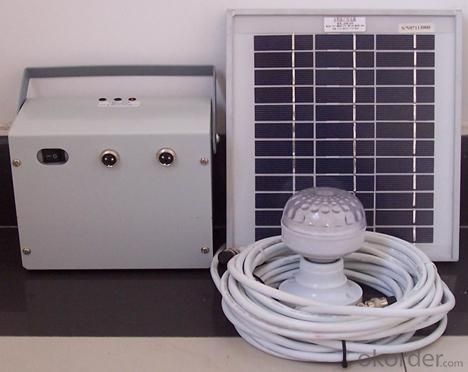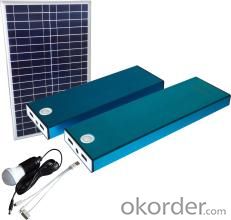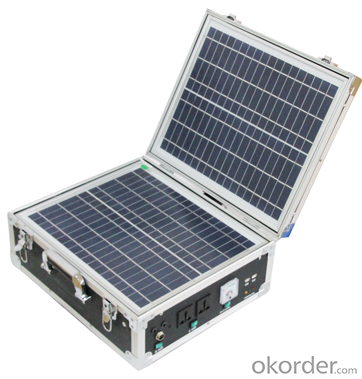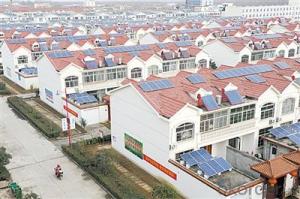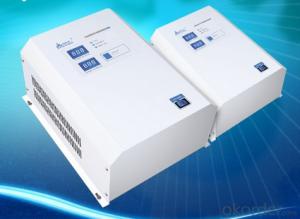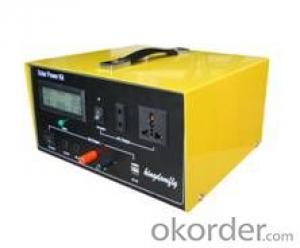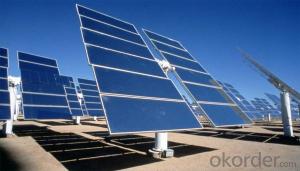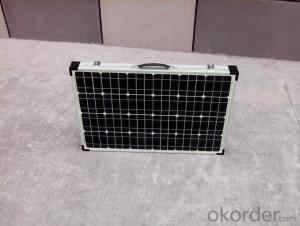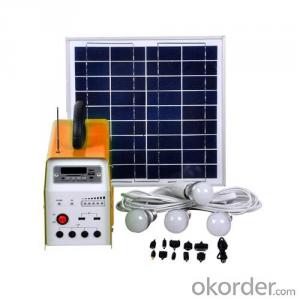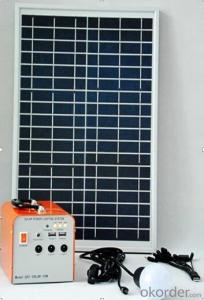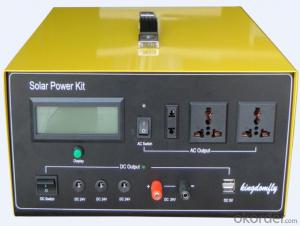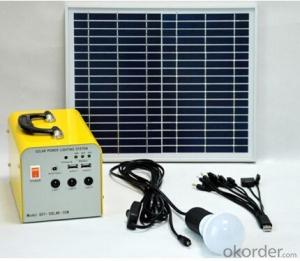Solar Energy Systems Nappanee Indiana Solar Portable System AN-S50W
- Loading Port:
- Shanghai
- Payment Terms:
- TT OR LC
- Min Order Qty:
- 0 set
- Supply Capability:
- 10000 set/month
OKorder Service Pledge
OKorder Financial Service
You Might Also Like
Specification
Description of Solar Portable System AN-S50W
Compatible portable solar power supply, also called solar mobile power, it includes: solar panel, charge controller, discharge controller, electric charge controller, inverter, outside enlarge capacity interface and battery, etc. Photovoltaic portable power supply can work in solar energy and ordinary power two modes, and can automatically switch. Photovoltaic portable power supply is used widely is the emergency relief, tourism, army, geological prospecting, archaeology, schools, hospitals, Banks, gas stations, comprehensive building, highway, substation, family camping or outdoor activities such as emergency power ideal power supply equipment.
Specifications of Solar Portable System AN-S50W
1. Solar Panel: 50W 18V
2. Battery: 12V20AH lead-acid battery
Input terminal: 1 DC input, 14.8V; 2 solar input terminal (+,-), 18V.
Output terminal: 8 output terminals, including:
1x USB output, 5V 1A;
5x DC outputs, 12V 1A;
2xAC220V outputs
Switch: 2pcs; left one for DC12V, right one for AC220V
Indication lamp: 2 pcs; Red one is for charging indication, Green one is for operating indication.
Accessories of Solar Portable System AN-S50W
1. 2pcs 3W led bulbs;
2. 1pc 5m connection wire between solar panel and cabinet;
3. 2pcs lamp holder with 3m wire;
4. 1pc AC charger
Technical Data of Solar Portable System AN-S50W
| Internal Package Size (cm) | 36*24*26 (panel extra) |
| Packing QTY | 1 |
| External Package Size (cm) | 36*24*26 (panel extra) |
IMages of Solar Portable System AN-S50W
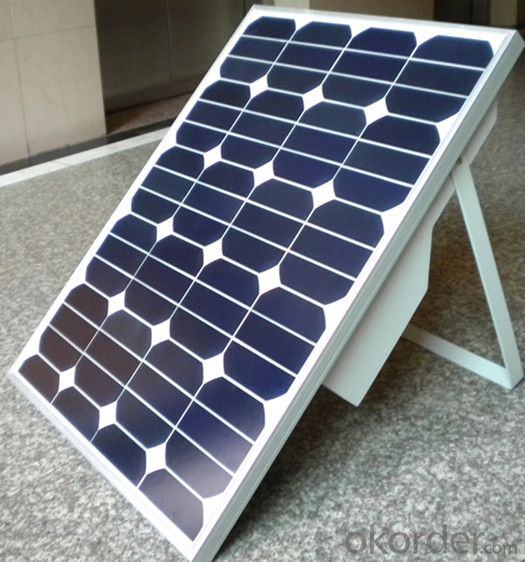
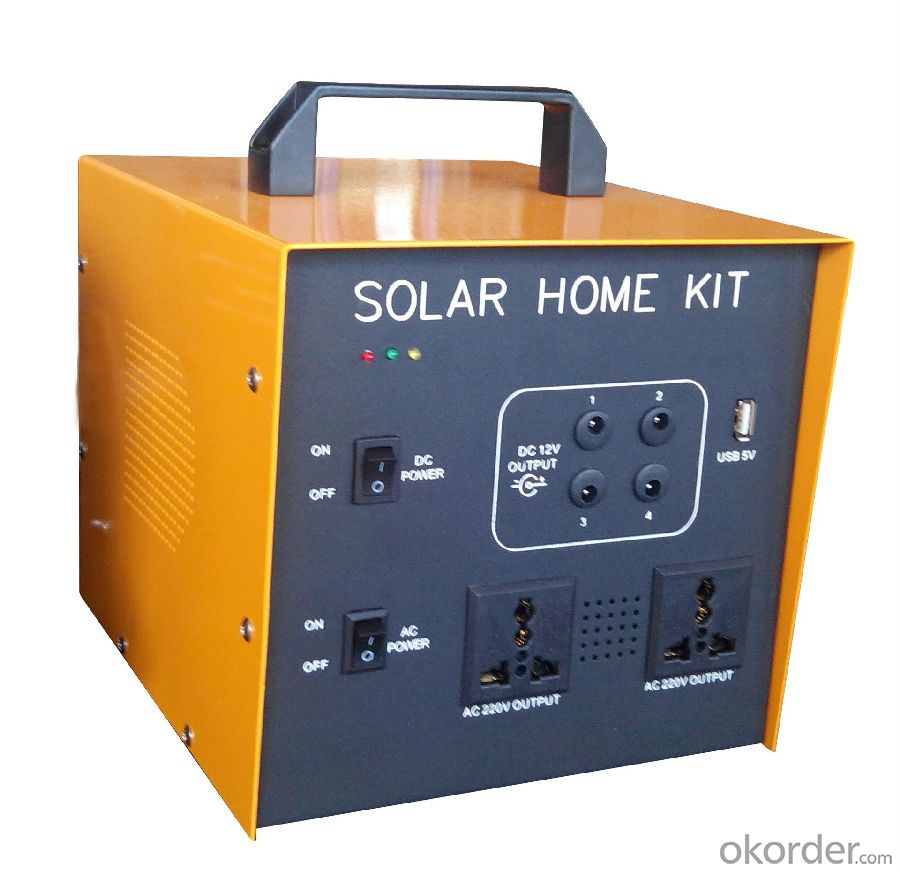
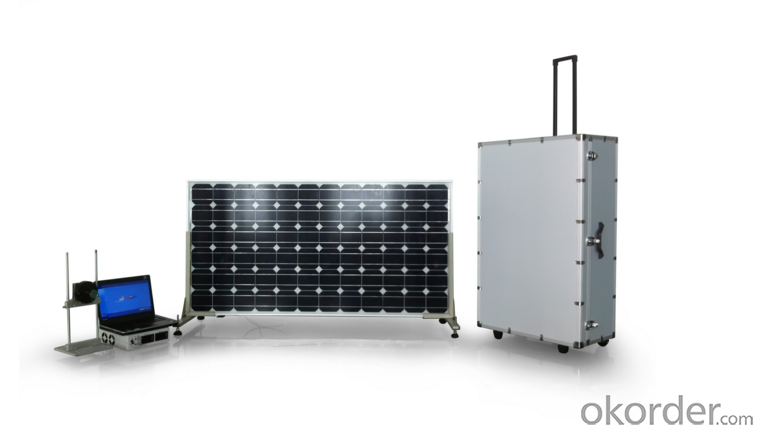
FAQ:
1. How long will my inquiry get response?
Your inquiry related to our products or prices will be replied within 24 hours.
2. Can I get professional service and suggestion?
Well-trained and experienced staffs to answer all your questions in fluent English.
3. Do you accept OEM or customized design?
OEM & ODM, any your customized lightings we can help you to design and put into product.
4. What if I need specific design?
Distributorship are offered for your unique design and some our current models.
- Q: Can solar panels generate electricity on cloudy days?
- Yes, solar panels can still generate electricity on cloudy days, although their efficiency may be reduced. While direct sunlight is ideal for solar panel performance, they can still generate electricity from diffused sunlight that passes through clouds. The amount of electricity produced on cloudy days will depend on factors such as the thickness of the cloud cover, the type and quality of the solar panels, and the angle and orientation of the panels. While the output may be lower than on sunny days, solar panels can still contribute to electricity generation and can be a valuable renewable energy resource even in less sunny areas.
- Q: Can solar energy systems be used in powering community centers or social organizations?
- Yes, solar energy systems can certainly be used to power community centers or social organizations. Solar panels can be installed on the rooftops of these buildings to harness sunlight and convert it into electricity. This renewable energy source can help reduce electricity costs and dependence on traditional energy sources, making it an environmentally friendly and sustainable option for powering community centers and social organizations. Additionally, solar energy systems can also contribute to raising awareness about renewable energy and inspire others in the community to adopt clean energy practices.
- Q: What is the impact of air pollution on solar panel efficiency?
- Air pollution can significantly reduce the efficiency of solar panels by blocking or scattering sunlight, leading to decreased energy production. The presence of particulate matter, such as dust, smog, or soot, on the surface of solar panels reduces the amount of sunlight that can penetrate and reach the photovoltaic cells, thus hindering their ability to convert sunlight into electricity. Additionally, air pollution can create a layer of dirt or grime on the panels, further diminishing their efficiency. Regular cleaning and maintenance of solar panels are essential to mitigate the impact of air pollution and ensure optimal energy generation.
- Q: Can a solar energy system be installed on a flat roof?
- Yes, a solar energy system can be installed on a flat roof. In fact, flat roofs are often considered ideal for solar panel installations due to their ease of access and unobstructed sunlight exposure. Flat roofs provide a relatively straightforward installation process as the panels can be mounted directly on the surface without the need for additional structural modifications. Additionally, the orientation and tilt of the solar panels can be optimized to maximize energy production. However, it is important to consider factors such as the load-bearing capacity of the roof, available space, and potential shading issues when planning the installation. Consulting with a professional solar installer or engineer can help ensure a successful installation on a flat roof.
- Q: What is net metering and how does it work with solar energy systems?
- Net metering is a billing arrangement that allows solar energy system owners to receive credit for the excess electricity they generate and feed back into the grid. With net metering, when a solar energy system produces more electricity than is being consumed, the excess energy is sent back to the power grid, and the homeowner or business owner receives a credit on their utility bill. This credit can then be used to offset the cost of electricity when the solar system is not generating enough power, such as during nighttime or cloudy days. Essentially, net metering ensures a fair and efficient exchange of electricity between the solar system owner and the utility company, making solar energy systems more economically viable and accessible.
- Q: Can solar panels be installed on vertical surfaces?
- Yes, solar panels can be installed on vertical surfaces. While they are most commonly installed on rooftops or ground-mounted systems angled towards the sun, advancements in technology have made it possible to mount solar panels on vertical surfaces such as walls or fences. These vertical installations are known as building-integrated photovoltaics (BIPV) and can be an effective way to generate solar energy in areas with limited horizontal space.
- Q: Can solar energy systems generate power at night?
- No, solar energy systems cannot generate power at night as they rely on sunlight to produce electricity.
- Q: Can solar energy systems be used for powering electric vehicle charging pads?
- Certainly, solar energy systems have the capability to power electric vehicle charging pads. Sunlight can be harnessed and transformed into electricity through the installation of solar panels on rooftops or open areas. Consequently, this generated electricity can be utilized to operate the charging pads for electric vehicles. By incorporating solar energy, we not only diminish our reliance on fossil fuels but also mitigate the discharge of greenhouse gases associated with charging electric vehicles using grid electricity. Moreover, solar-powered charging pads can be implemented in remote or off-grid areas where access to the power grid is restricted or nonexistent. This renders solar energy systems an environmentally sustainable and favorable solution for energizing electric vehicle charging pads.
- Q: Can solar energy systems generate enough electricity to power a home?
- Yes, solar energy systems can generate enough electricity to power a home. The amount of electricity produced by a solar energy system depends on various factors such as the size and efficiency of the system, the geographical location, weather conditions, and the energy consumption patterns of the household. In general, a well-designed and properly installed solar energy system can generate enough electricity to power a typical home. The system consists of solar panels that capture sunlight and convert it into electricity through the photovoltaic effect. This electricity can be used to meet the energy needs of a home, including powering appliances, lights, heating and cooling systems, and other electrical devices. To ensure sufficient electricity production, it is important to consider the energy requirements of the home and design a solar system accordingly. This includes determining the appropriate number and size of solar panels, as well as incorporating energy storage solutions such as batteries to store excess electricity for use during cloudy days or at night. Moreover, advancements in solar technology, such as high-efficiency solar panels and smart inverters, have significantly improved the energy output of solar systems. Additionally, net metering programs in many areas allow homeowners to sell excess electricity back to the grid, further enhancing the economic viability of solar energy systems. While solar energy systems can generate enough electricity to power a home, it is crucial to assess the specific circumstances of each home to determine the feasibility and efficiency of installing such a system. Consulting with a reputable solar energy provider and conducting a thorough assessment will help homeowners make informed decisions about harnessing solar power for their homes.
- Q: Are there any aesthetic considerations when installing a solar energy system?
- Yes, there are aesthetic considerations when installing a solar energy system. These considerations include the placement and design of solar panels to blend harmoniously with the surrounding environment and architectural style of the building. Additionally, efforts are made to minimize the visual impact of wiring and equipment, ensuring a visually pleasing installation.
Send your message to us
Solar Energy Systems Nappanee Indiana Solar Portable System AN-S50W
- Loading Port:
- Shanghai
- Payment Terms:
- TT OR LC
- Min Order Qty:
- 0 set
- Supply Capability:
- 10000 set/month
OKorder Service Pledge
OKorder Financial Service
Similar products
Hot products
Hot Searches
Related keywords
